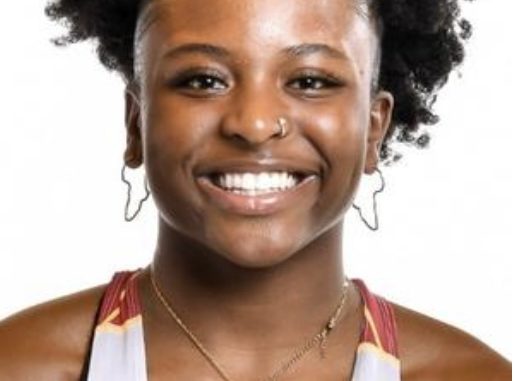
As the spring semester begins and most students dive head-first into both classes and the occasional snow, some seniors have not returned to Ursinus’ campus. They happened to be the most recent graduates of Ursinus College, leaving the nest in pursuit of their future endeavors. These seniors’ contributions to Ursinus have been immense over the years, leaving a void in their place; Esther Akande is no exception. Akande, a Neuroscience major with minors in French, Psychology, and Biology, was – *inhales* – the head of SUN (Sankofa Umoja Nia/Black Student Union), a key factor alongside others in reviving the Pi Chi Chapter of Sigma Gamma Rho Sorority, Inc., a Writing Fellow, a Crigler peer mentor, the president of Seismic Step, a jumper for the Women’s Track and Field team, a member of the gospel choir, and a safety dispatcher. And breathe.
With her extensive list of accomplishments and roles, The Grizzly asked Akande about her background and her reasoning for being heavily involved in Ursinus’ community, along with some of her successes, regrets, and future plans.
Sidney Belleroche: You were a leader in the black community at Ursinus, and reviving the Pi Chi Chapter is no small feat. What made you so involved in the black community at Ursinus?
Esther Akande: I grew up in Upper Darby, Pennsylvania, a very diverse, small town. And so, for most of my life, I had never known what it was like to be the minority. I knew coming to Ursinus would be a different scene, but nothing could have prepared me for the culture shock. It really just reinforced for me how important it is to find community wherever you are. I guess you can say that I took my upbringing for granted until then. Knowing how much community meant to me and how grateful I was to find it naturally by joining certain clubs, I knew this wasn’t the case for everyone. When I knew the upper-level students who were so welcoming to me were on their way out the door, I wanted to maintain or elevate that sense of community for others, especially [for] those who would come after me.
SB: You already touched on challenges you faced when coming to Ursinus. Sticking with the theme, what challenges or difficulties did you face while being a leader in the black community? Do you feel like you were being heard?
EA: Well, for one, is the amount of work. No one ever highlights all the behind-the-scenes work that goes into planning and executing events. It’s so easy to complain about things without even knowing how long it took to come to fruition. Secondly was working with friends. When you take on leadership, and you’re on these executive boards with your friends, it can be hard to be a stern leader without feeling like you’re being too bossy, or sometimes it can feel like things you say aren’t being taken seriously because of the other connections you have with people outside an organization. I can say, though, that, for the most part, I felt very heard. The Institute of Inclusion and Equity staff especially were a tremendous help. And even those times where I felt unheard never stopped me from asking again. Some call it persistence, and others call it stubborn. I’m okay with either.
SB: Do you have any events you are particularly proud of?
EA: Absolutely. The African diaspora event in the fall was certainly a highlight as well as Seismic Jam! And as far as SGRho goes, I’d say both Neophyte Presentations are a big highlight for me. I feel like any leader has those moments where they wish they could’ve done more. There was one professional development event with SUN that I wanted to do that never panned out. If I could go back, I’d try again.
SB: Final two questions here. How do you feel Ursinus College is handling diversity? What are they doing well and what could be improved? According to the most recent figures available from the National Center for Education Statistics, 7 percent of Ursinus’ enrollment was black and 7 percent was Latino.
EA: I can see in the incoming classes that they’ve improved their recruiting efforts. It was a rarity to see students of color my first year, and I feel like with each year after, it’s gotten better. In terms of improvement, I think things like the events surrounding black history could be a bit better planned. The most recent video from MLK week felt a bit tone-deaf. I think the best way to move forward with diversity efforts is to ensure their targeted audiences are also part of the conversation. Bring in students and staff of color when making decisions and give them room to not only voice their opinions but also give them actual power and influence.
Esther Akande recently got her first job as a research technician in the preclinical toxicology space. She will work with animals to ensure the safety of therapeutic options that may one day develop into medications to be sold on the market. As a final message, she encouraged all students to take advantage of Ursinus’ resources. We thank Esther for her work in the past three-and-a-half years.
